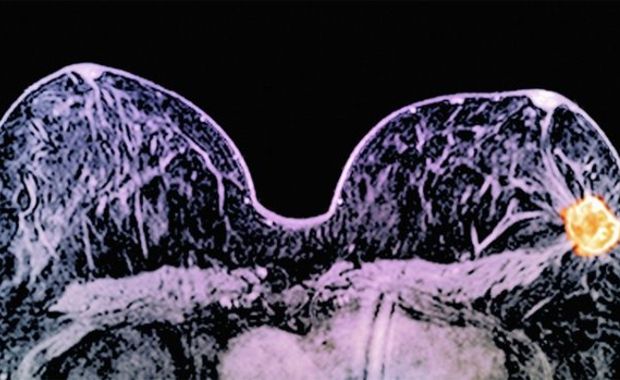Advertisement
New Miracle Drug Can Shrink Breast Cancer Tumors in 11 Days
| By Lauren Boudreau
Advertisement - Continue reading below

In a new short-term trial, a pair of drugs severely shrunk and, in some cases, eliminated breast cancers in only 11 days. The results were presented at the European Breast Cancer Conference and could mean major changes in the way breast cancer is treated.
According to BBC News, these results came as a complete shock. The doctors leading the trial did not expect or even intend to get these results. They were only testing how, or if, the drugs changed the cancers in the time between diagnosis and the operation to remove it. However, when it came time to operate, there was either no sign of the tumor at all, or a severely reduced tumor in some patients.
The experiment tested 257 women with tumors measuring between 1 and 3cm, and for 11 percent of women, the cancer had disappeared, while 17 percent showed tumors of 5mm or less.
The drugs, lapatinib and trastuzumab, also known as Herceptin, target the HER2 protein that triggers growth in some women’s breast cancers.
“Herceptin works on the surface of cancerous cells while lapatinib is able to penetrate inside the cell to disable HER2,” the BBC reports.
Professor Judith Bliss, of the Institute of Cancer Research in London, said that these findings could mean that some women will not need chemotherapy. However, more studies will have to be done to ensure they are not increasing the chance for relapse.
Baroness Delyth Morgan, chief executive at Breast Cancer Now, told BBC News, “Such a rapid response to treatment could soon give doctors the unprecedented ability to identify women responding so well that they would not need grueling chemotherapy.”
Currently breast cancer is known to be 10 different diseases, each with its own cause, life expectancy, and treatment. Doctors think that if they can match the right drug to the right cancer, it could be a turning point in cancer treatment forever.
Her2 positive tumors are just one example of getting that match right.
Professor Arnie Purushotham, of Cancer Research UK told BBC News, “These results are very promising if they stand up in the long run, and could be the starting step of finding a new way to treat HER2 positive breast cancers.”
Advertisement - Continue reading below
Share
On Facebook
